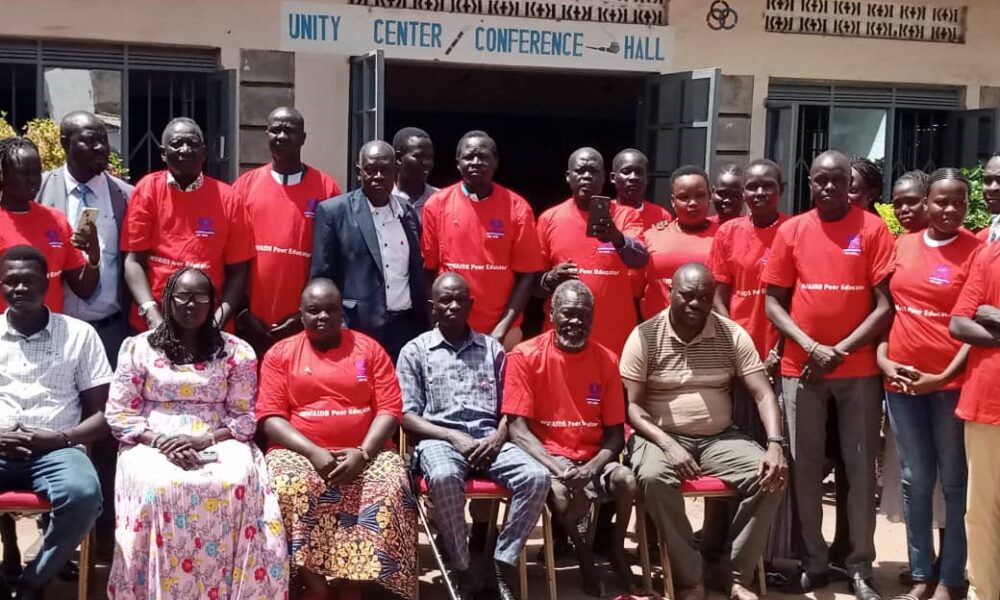By Yang Ater Yang
United Nation Mission in South Sudan (UNMISS) Infectious Disease and Public Health Unit in Rumbek conducted a 10-day training for 26 health promoters from various institutions across Lakes State.
The program aimed to build capacity in HIV/AIDS prevention and awareness among host communities.
Atet Manela, a student who participated in the training, highlighted the importance of knowledge sharing saying the training has been very helpful.
“We learned how to care for people with HIV, prevent transmission, and protect ourselves from HIV and other sexually transmitted infections (STIs).” She emphasized the need to address stigma.
“We will go back to our communities and share this knowledge to combat the discrimination faced by people living with HIV. We want to encourage people to live together peacefully and provide care without discrimination” said Atet
Priscilla Arop Malieny, the Chairperson of the HIV/AIDS Commission in Lakes State, emphasized key takeaways from the training. “Participants learned prevention strategies, how to protect others, and how to address stigma.”
She urged the community to prioritize prevention and treatment urging pregnant women to attend antenatal care to prevent mother-to-child transmission.
“Those who test positive should take their ARVs to live long and healthy lives” she stressed.
Arop also called for wider outreach through media like radio would allow messages to reach more people, especially those in remote areas.
Stephen Odera, UNMISS Focal Point in Rumbek, explained the training’s focus.
“This annual training equips participants to become change agents in their communities.” He highlighted the selection process: “We prioritized female representation, recognizing the gap in women’s participation.”
Odera further elaborated on the training content saying they covered HIV basics, including; transmission modes, prevention strategies, and the global picture of HIV compared to South Sudan.
“We also equipped participants with teaching methods and provided them with handouts, film shows, and awareness creation tools” he stated.
He emphasized the importance of cultural sensitivity.
“We discussed cultural aspects that can fuel HIV transmission, such as widow inheritance, forced marriage, and tribal scarification. We explored ways to adapt these practices to minimize transmission risks” Odera highlighted.
Meanwhile, John Malith Rual, representing a group of elders in Lakes State, expressed his concerns.
“We formed this committee due to the alarming rates of HIV/AIDS in Lakes State. Our youth are dying, and cultural ignorance fuels the epidemic.”
He advocated for safe sex practices and fidelity.
“Prevention is key. There is no cure or vaccine, but remaining faithful to your partner can significantly reduce transmission” he advised.
Rual stressed the importance of media involvement saying they have a powerful radio station that can be used to disseminate messages effectively.
“Radio is often used for announcing funerals, but it should also be used to promote awareness and education about HIV/AIDS.” He added.
The elder concluded by urging for open communication.
“Ignorance is the biggest problem. People with HIV can live long lives with proper medication. We need to be open about the disease to combat fear and stigma” he emphasized.




